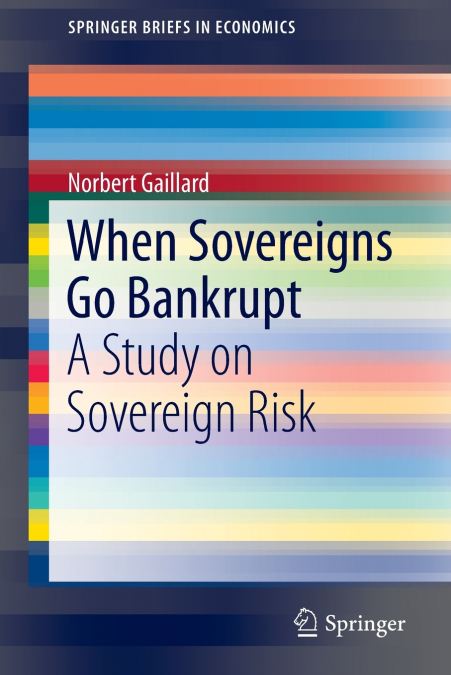
Norbert Gaillard
The public debt crisis that Eurozone countries have experienced since 2010 has been accompanied by a resurgence of sovereign risk. Greece was obliged to restructure its debt in 2012. The credit position of even the wealthy countries is shakier than at any time since the Great Depression. Now more than ever it is essential to understand sovereign risk because the default of a country, or even its lack of credibility, is bound to jeopardize political stability and weaken the credit standing of all other economic actors. This book reviews and analyzes the different means used to forestall and protect against sovereign defaults. In light of the Eurozone’s 2010-2012 sovereign debt crisis, this book also emphasizes the roots of sovereign creditworthiness. Chapter 1 establishes a typology of sovereign defaults. A sovereign 'bankruptcy' may take many forms (debt repudiation, moratorium, restructuring, etc.). Chapter 2 presents the different contractual and legal tools used to protect against sovereign defaults. Chapter 3 investigates how some investors have been able to interfere with the debtor’s economic policy by insisting that measures be taken to reduce the risk of default in the short and medium term. Such interference can be direct or may be more subtle. There is a specific focus on the conditionality imposed by the International Monetary Fund. Chapter 4 studies the various tools that investors can use to discriminate among borrowers and forecast debt crises (bond yields and spreads as well as ratings provided by Fitch, Moody’s, Standard & Poor’s, and Euromoney Country Risk). Chapter 4 also demonstrates that sovereign debtors must overcome seven types of risk in order to preserve their creditworthiness: natural disaster, geopolitical risk, institutional and political risk, economic risk, monetary and exchange rate risk, fiscal and tax-system risk, and debt-related risk.